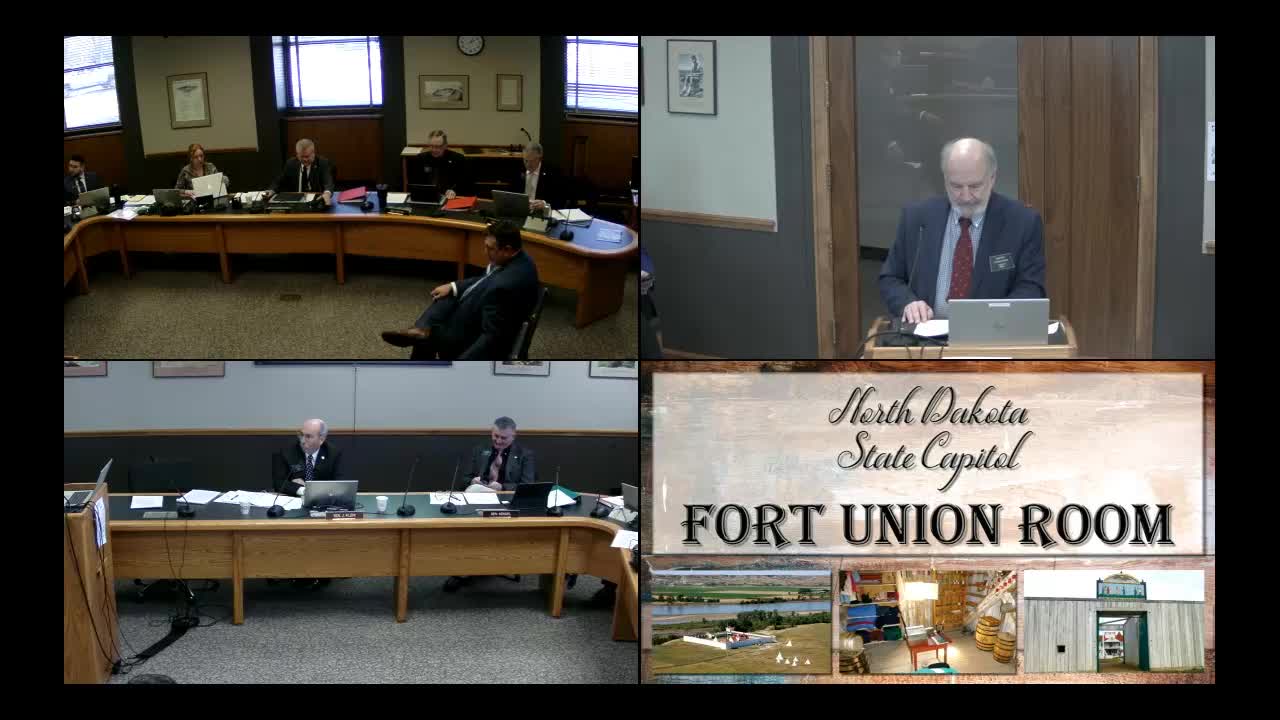Senate Industry and Business Committee issues unanimous 'do not pass' on bill to restore pre‑1995 retirement presumption for injured workers
Get AI-powered insights, summaries, and transcripts
Subscribe
Summary
Senate Industry and Business Committee members voted unanimously to recommend a do‑not‑pass on Senate Bill 2094, which would have removed the post‑1995 retirement presumption and allowed injured workers to continue wage‑loss benefits after they become eligible for Social Security retirement benefits.
Senate Industry and Business Committee members voted unanimously to recommend a do‑not‑pass on Senate Bill 2094 after hearing testimony from the bill sponsor and opponents about the law’s worker protections and financial impact.
Senator Tim Mathern, sponsor of SB2094, told the committee the bill “eliminates the retirement presumption effective for post 1995 claims,” and would let “injured workers continue receiving wage loss benefits after they have become eligible for Social Security retirement benefits.” He also said the proposal “eliminates the 3 year cap on disability benefits regardless of the date of injury.”
The bill's backers told the committee they introduced SB2094 because some injured workers face a sudden reduction in income when they reach retirement age and that the change would preserve benefits for people who could not build retirement savings because of work‑related injuries.
Jodi Bjornson, general counsel for Workforce Safety and Insurance (WSI), testified in opposition on behalf of WSI’s board. Bjornson said the 1995 legislative changes established that WSI wage‑loss benefits are a safety net during workers’ earning years and are not intended to replace retirement benefits. She described a 1997 “additional benefit payable” statute meant to soften the transition at retirement and emphasized that injured workers remain eligible for medical benefits and permanent partial impairment awards for the life of an injury.
Bjornson warned of a large fiscal impact if the bill retroactively reopened post‑1995 claims. “WSI cannot charge rates or premiums retroactively,” she said, and described an initial reserve‑impact estimate of about $100,000,000 that “does not consider those claims that have left the system and may be required to be reopened.” She also cited an actuarial estimate that future premiums could rise roughly 1.2 percent under the change.
Eric Spencer, president and CEO of the Greater North Dakota Chamber, echoed concerns about fund stability and the competitiveness of North Dakota’s premium environment. Spencer said employers value historically low WSI premiums and urged the committee to give SB2094 a do‑not‑pass recommendation.
Committee members pressed both sides on scope and numbers. Mathern acknowledged he had heard primarily from constituents who had approached him; Bjornson said WSI’s fiscal note and actuaries supplied broader estimates. Bjornson also clarified that the 1997 additional benefit payable is an ongoing payment made on the same 28‑day cycle as wage‑loss benefits and that the benefit’s amount and duration rise with the length of time a worker was off the job.
After discussion, Senator Boehm moved a do‑not‑pass recommendation; the motion was seconded by Senator Engott. The clerk called the roll and the committee recorded unanimous support for the do‑not‑pass motion.
Votes at a glance: Do‑not‑pass motion on SB2094 — Ayes: Senator Klein; Senator Kessel; Chairman Bridal; Vice Chairman Boehm; Senator Enget/Engott. Outcome: recommendation to not pass the bill; the committee closed the hearing on SB2094.
What’s next: With a committee do‑not‑pass recommendation recorded, the bill does not advance out of the committee unless further procedural action is taken by its sponsor or other members.
